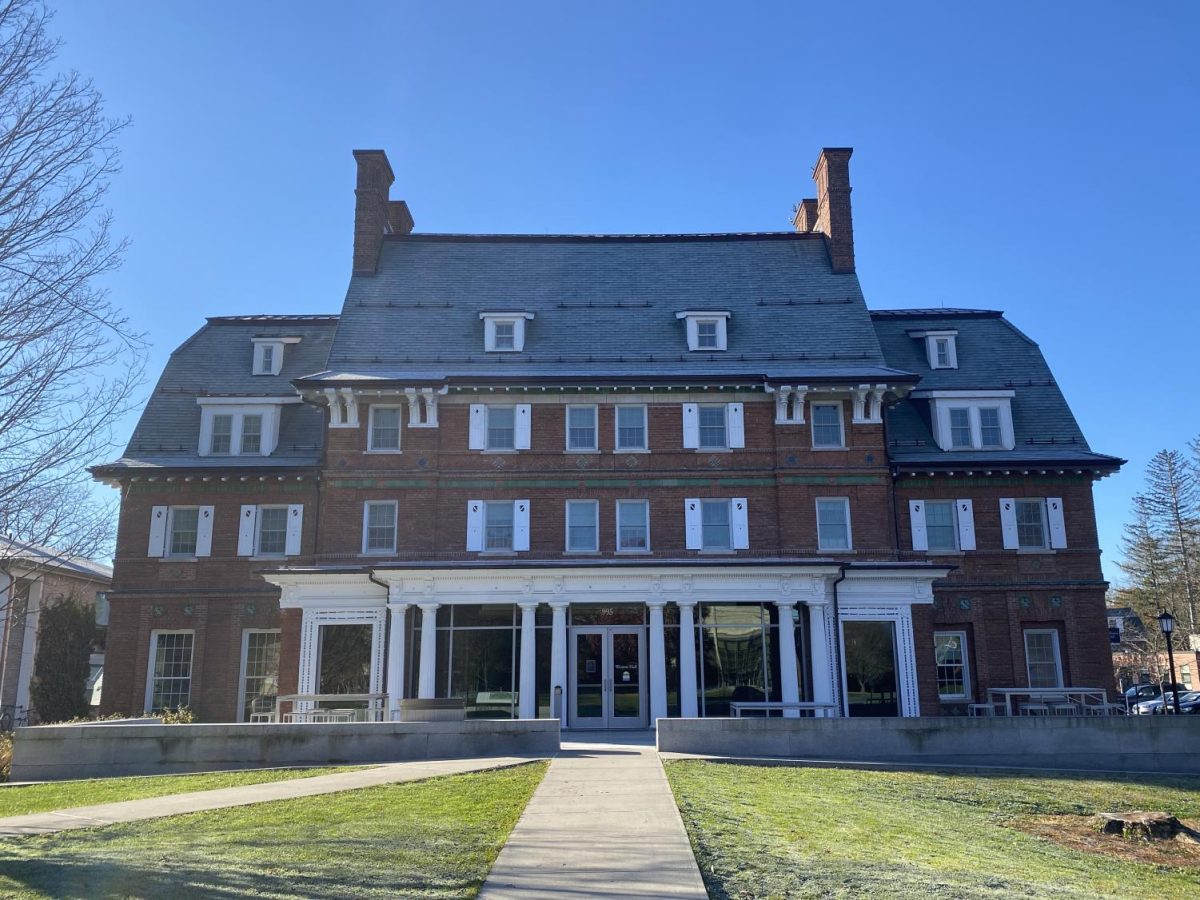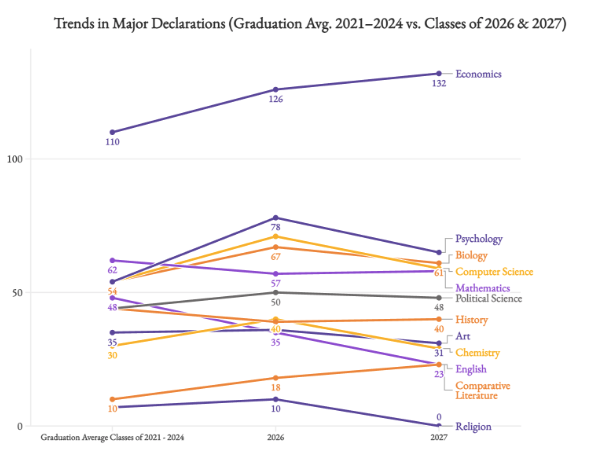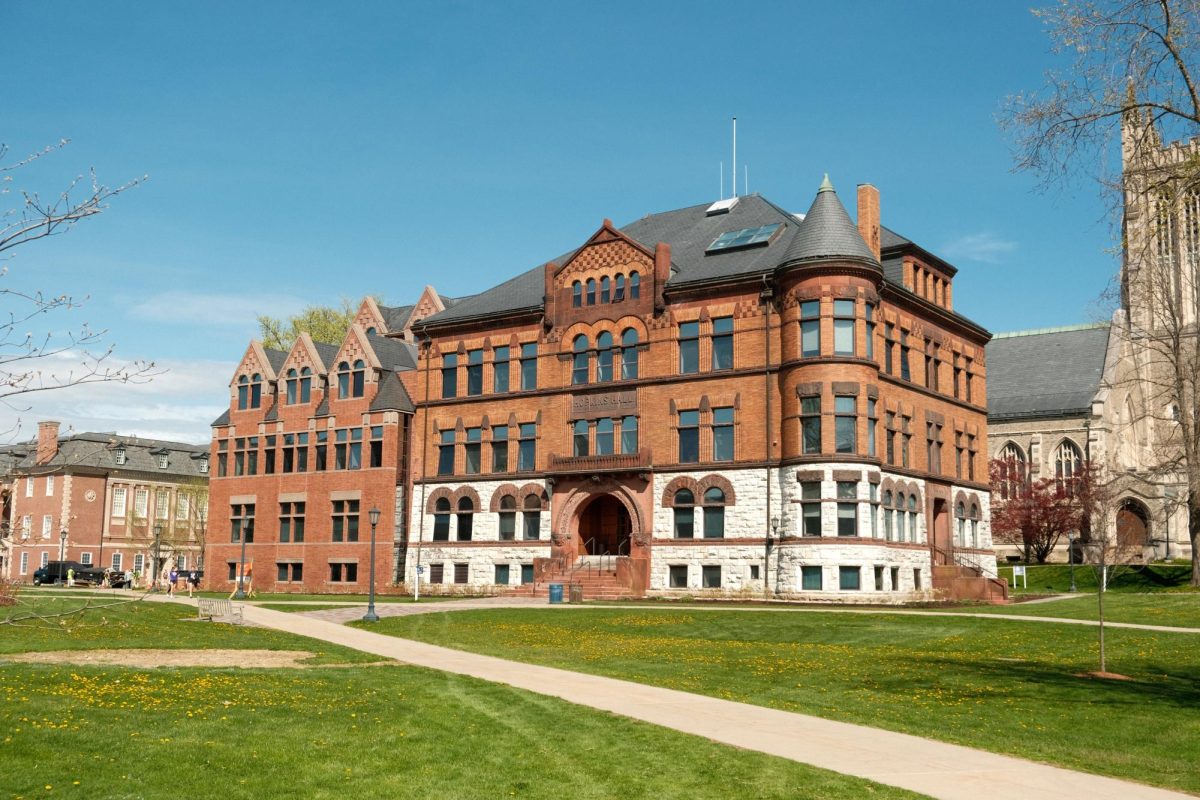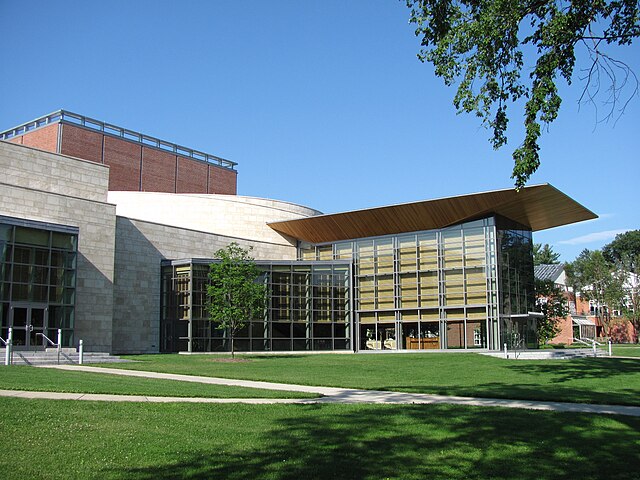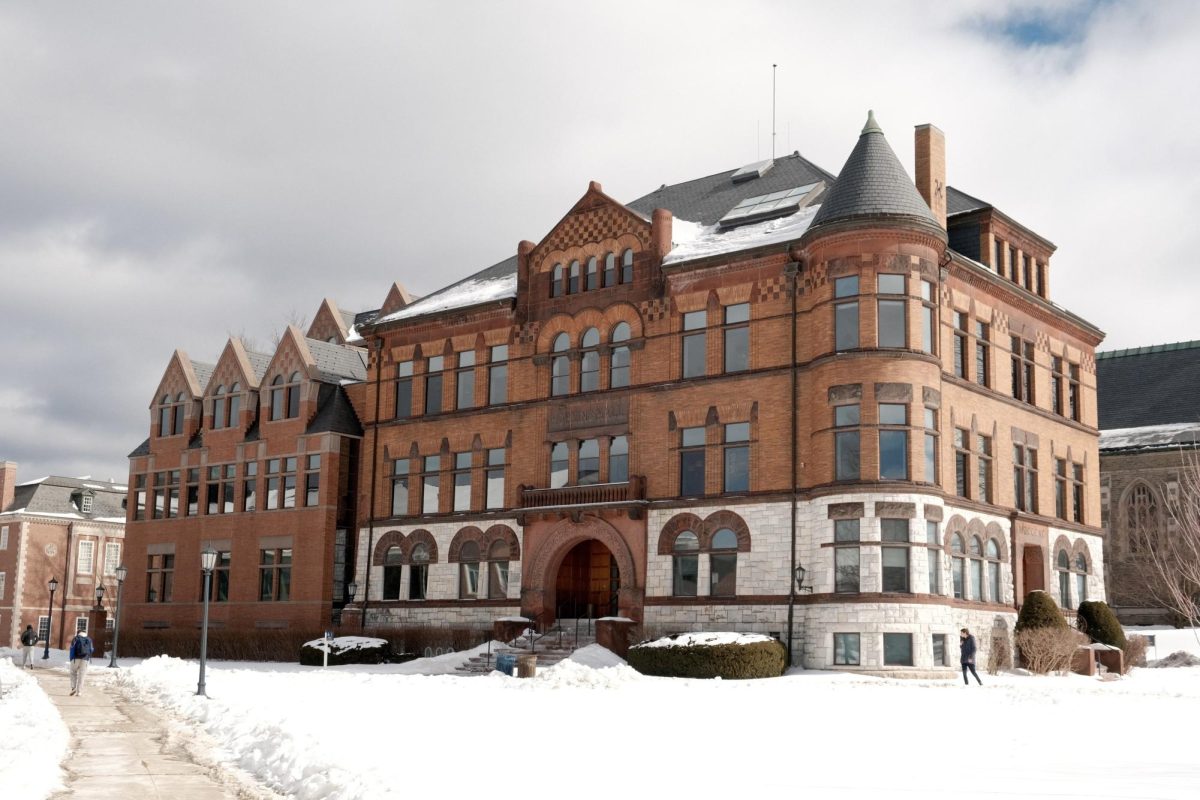Behind Poker Flats, construction on the College’s first community garden has finally begun. Initially started in 2018, the project was temporarily stalled due to the COVID-19 pandemic this past spring. Now, although the community garden will face limitations on spacing and participation in light of public health guidelines, the garden should be finished by the end of the calendar year, with plots available for planting next spring. Unlike Parsons Garden and the beds on the north side of the Environmental Center — existing student-run gardens on campus — the community garden will be open for Williamstown community members to plant their own plots alongside students, faculty and staff.
According to Interim Director of the Zilkha Center Mike Evans, the Zilkha Center sent out an initial survey to the College community in February 2018 which received 82 responses to the question, “How do you feel about the idea of a community garden?” On a scale of one to five, five corresponding to most favorable, every respondent was in favor, with a 4.9 average. A second survey in June 2019 gauged community members’ interest in having their own garden plot, again on a scale of one to five with five being “would love a plot” and one being “no thanks.” Out of 91 total respondents, 53 indicated a five, 29 answered four and nine answered three.
From there, the Center submitted a Capital Improvement Request (CIR) for funding and reached out to survey respondents and through daily messages to “pull together a steering committee that would help us figure out where the location would be, and how we would make this garden come to life, no pun intended,” Evans said.
In searching for the perfect location, the committee also considered a piece of land near the ’62 Center parking garage and a space behind Dodd House before settling on Poker Flats. According to a sustainability press release from 2019, “The parking garage had a habit of getting too wet and mucky when it rained.” As for Dodd, Evans said that the building’s impending renovation precluded that idea.
Jaya Alagar ’22, a student member of the committee, worked as a research assistant in Center for Environmental Studies Lab Supervisor and Lecturer Jay Racela’s environmental analysis lab during the summer of 2019. “With Petra Baldwin ’21, I sampled soil at different depths and locations from the community garden and analyzed them for heavy metal concentrations,” Alagar said. “We compared these concentrations to EPA limits for our independent project last summer, as we wanted to inform community garden governance on whether or not (and if so, in what capacity) the soil had metal contamination, which is detrimental for crop growth.”
Alagar noted how she was able to contribute her knowledge regarding soil contamination as well as bring a student voice to the table, since most of the committee comprised faculty, staff and community stakeholders. “I raised questions such as, ‘Would students be allowed to have plots, and who would take care of the plots during summers?’” she said.
“I think a lot of decision-making at Williams does not come from a student-level,” Alagar added, “So it was nice to sit on a committee where student experience was actively thought of.”
The Zilkha Center also sought the approval of relevant campus stakeholders, such as the Williams Ultimate Frisbee Organization (WUFO), which often practices and competes at that location, and the Alumni Office, which holds reunions on the field.
The garden will be approximately 100 by 100 feet, with 30 beds in the first year with room for additional beds to be added “if there is still interest and everything goes well,” Evans said.
According to Evans, the entire project will cost around $10,000 “for the garden to have deer fencing, an ADA accessible path, the garden beds, soil, acompost area, shed, some tools … [and] a water line.”
Despite most new construction projects being put on hold while the College readjusts its budget, the garden has managed to go on. “I think it was a small enough project that had [already been] started,” Evans said. “So that’s one of the reasons that it was continued, although it was put on pause for quite a while like many other projects.”
Construction was originally supposed to begin this past spring. However, the disruption resulting from COVID-19 delayed construction and put a halt to the steering committee’s ability to meet; according to Evans, they have not met since this past February.
To Evans, the situation of the pandemic makes the community garden especially important. “We see the opportunity for it to be a space where people can both grow food and be in community (safely and distanced from another) at a time when we’re looking for ways to safely be in community with one another,” he said.
Spring garden interns at the College have also researched safe gardening practices to implement. These involve social distancing and mask-wearing in compliance with campus guidelines, as well as additional sanitation of shared garden tools.
Still, gardeners and visitors alike won’t be able to interact as closely as initially planned. “Being in community with one another during COVID is obviously different,” Evans said. “Since visitors aren’t allowed on campus, it will start off as a community garden just for staff, faculty and students. Post-COVID, the intention is that it’s going to be a town-gown sort of thing.”
“It’s also interesting to see Williams almost go back in time, embracing its New England location and history, through this endeavor,” Alagar said. “To those ends, I hope that the project spurs more and more student engagement, scholarship, and reflection on evolving definitions of sustainability, land stewardship, and community collaboration.”



